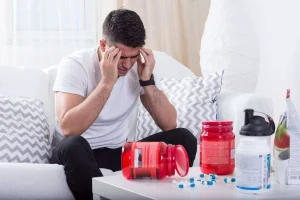
Our writers include physicians, pharmacists, and registered nurses with firsthand clinical experience. All condition, treatment and wellness content is medically reviewed by at least one medical professional ensuring the most accurate information possible. This generally means having one drink per day for females or having two drinks per day for males. American Addiction Centers (AAC) offers state-of-the-art rehab facilities for treating AUDs and is a leading provider of alcohol detox and treatment across the nation. Our treatment programs are tailored to your unique needs and adjusted throughout the length of treatment.
- If a person has generally consumed two to three drinks as a man or one to two drinks as a woman in an hour, they’ll enter the euphoric stage of intoxication.
- If someone experiences alcohol poisoning, they will need time to recover.
- The early stages of alcohol-related liver disease often have no symptoms.
- BAC and the number of drinks you consume are very rough indicators of impairment.
As Blood Alcohol Concentration Increases—So Do the Risks
- Because denial is common, you may feel like you don’t have a problem with drinking.
- Don’t play doctor—cold showers, hot coffee, and walking do not reverse the effects of alcohol overdose and could actually make things worse.
- For example, performing poorly at work, flunking classes, neglecting your kids, or skipping out on commitments because you’re hung over.
- Some people with severe alcoholic hepatitis may need a liver transplant.
- Our writers include physicians, pharmacists, and registered nurses with firsthand clinical experience.
- If an individual drinks alcohol on an empty stomach, their BAC usually peaks within 30–90 minutes.
In an estimated 30 percent of alcohol poisoning deaths, alcoholism was identified as a leading factor. About three of every four alcohol poisoning deaths affect individuals ages 35 to 64. In many cases, https://ecosoberhouse.com/article/who-sober-alcoholics-are-and-what-it-means-to-be-sober/ people with alcohol-related liver disease (ARLD) do not have any noticeable symptoms until their liver is badly damaged. You care about your loved ones, but you can’t imagine your life without alcohol.
When your teen has a drinking problem

When you drink a large amount of alcohol in a short amount of time, your body is unable to process the alcohol contents fast enough. Additionally, it takes a while for your body to break down the toxins found in alcohol, causing you to feel drunk longer. Do you continue to drink even though you know it’s causing health problems, or making those problems worse? Alcohol can damage your liver, heart, brain, pancreas, and immune system. Although you realize it’s harming you, a physical or emotional dependence on alcohol can make quitting hard.
Depression in Older Adults

People who binge drink have a higher risk of experiencing alcohol poisoning. Binge drinking is defined as the consumption of five or more alcoholic drinks (for men) or four or more drinks (for women) within two hours. In the emergency room, a doctor will check their BAC and look for other signs a warning sign or symptom of alcohol poisoning is of alcohol poisoning, such as a slow heart rate and low blood sugar and electrolyte levels. Alcohol intoxication refers to a temporary condition that occurs when a person drinks an excess of alcohol at one time. It causes physical and behavioral symptoms that range from mild to severe.
Alcohol poisoning happens when there’s so much alcohol in your bloodstream that it starts shutting down life-supporting areas of your brain. These areas control your breathing, heart rate and temperature. If you’re ready to admit you have a drinking problem, you’ve already taken the first step. It takes tremendous strength and courage to face alcohol abuse and alcoholism head on.
- The Department of Health and Human Services classifies alcohol as a carcinogen, a substance that plays a role in causing cancer.
- Alcohol poisoning happens when there’s too much alcohol in your blood, causing parts of your brain to shut down.
- The person can become extremely confused, unresponsive, disoriented, have shallow breathing, and can even pass out or go into a coma.
- To diagnose alcohol poisoning, your doctor will perform an exam and order testing.
- A person can usually tell when they are intoxicated, but it may be challenging to spot the signs in others.
- The desire to drink is so strong that the mind finds many ways to rationalize drinking, even when the consequences are obvious.
If you develop alcoholic hepatitis, you may be able to reverse the damage by permanently abstaining from alcohol. Treatment also involves dietary changes and medications to reduce inflammation. Alcohol-related liver disease actually encompasses three different liver conditions.
Emergency medical technicians will be able to provide immediate treatment and get a person the professional medical assistance they need. Seek immediate medical care (call 911) for any of the symptoms of alcohol poisoning listed above. A person does not need to exhibit all of these symptoms to be in danger of dying or sustaining permanent brain damage. However, death is not the only consequence of excessive alcohol use. It is dangerous to assume that an unconscious person will be fine by sleeping it off.
- Your stomach will continue to absorb alcohol into your bloodstream even after you stop drinking.
- You’ll soon start receiving the latest Mayo Clinic health information you requested in your inbox.
- They may also experience seizures or have blue-tinged or pale skin.
- However, death is not the only consequence of excessive alcohol use.
Drink no more than one alcohol-containing beverage an hour. A person with alcohol poisoning needs medical help in a hospital. You shouldn’t try to treat it at home or “sleep it off.” A major danger of alcohol poisoning is choking on your vomit, which can happen when you’re unconscious or sleeping. Those problems could include depression, an inability to manage stress, an unresolved trauma from your childhood, or any number of mental health issues. Such problems may become more prominent when you’re no longer using alcohol to cover them up.
Impact on your health
It can be tough to determine when someone is at risk of overdosing on alcohol. In some social drinking situations, getting drunk is considered normal. You can tell that people are at risk for alcohol poisoning if they appear drunk and continue to drink. Exceeding daily guidelines for moderate drinking can cause health consequences. The Dietary Guidelines for Americans recommends that women should consume up to one alcoholic drink per day and that men consume up to two drinks per day. Severe alcoholic hepatitis can come on suddenly, such as after binge drinking, and can be life threatening.






